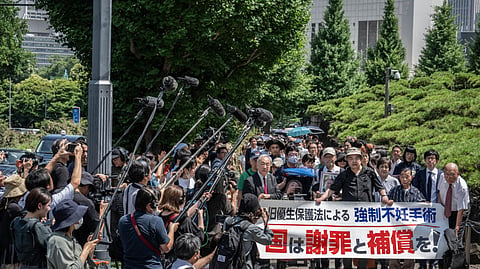
- NEWS
- the EDIT
- COMMENTARY
- BUSINESS
- LIFE
- SHOW
- ACTION
- GLOBAL GOALS
- SNAPS
- DYARYO TIRADA
- MORE

TOKYO (AFP) — Japan’s top court ruled on Wednesday that a defunct eugenics law under which thousands of people were forcibly sterilized between 1948 and 1996 was unconstitutional, local media reported.
The Supreme Court also ruled that a 20-year statute of limitations on compensation claims could not be applied, a major victory for victims who have endured decades of suffering.
Japan’s government acknowledges that around 16,500 people were forcibly sterilized under the eugenics law that was in place between 1948 and 1996.
The law allowed doctors to sterilize people with inheritable intellectual disabilities to “prevent the generation of poor quality descendants.”
Another 8,500 people were sterilized with their consent, according to authorities, although lawyers say even those cases were likely “de facto forced” because of the pressure individuals faced.
A 1953 government notice said physical restraint, anesthesia and even “deception” could be used for the operations.
“I’ve spent an agonizing 66 years because of the government surgery. I want my life back that I was robbed of,” victim Saburo Kita, who uses a pseudonym, said before Wednesday’s ruling.
Kita was convinced to undergo a vasectomy when he was 14 at a facility housing troubled children. He only confided what had happened to his wife shortly before she died in 2013.
“Only when the government faces up to what it did and takes responsibility will I be able to accept my life, even just a little,” Kita, now 81, told a news conference last year.
